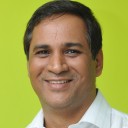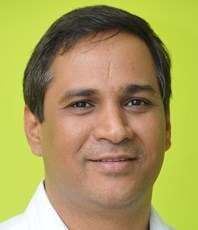During SOCAP 13, Kevin Jones and I concluded a partnership between SOCAP and SANKALP, the two leading global convenings on impact investing, with the idea of influencing the global inclusive development agenda. This partnership brought me back to SOCAP 14 to participate and learn more about the US perspective on impact investing. This time, instead of a curious traveller to SOCAP, I was a partner seeking answers to profound questions such as ‘Is it truly possible to influence the global agenda on inclusive growth through impact investing?’
The discourse around impact investing has evolved from a frenzied desire to label any kind of investment with impact as impact investing to a more studied and cautious approach of defining nuances that make impact investing unique. The use of intent as the key differentiator in defining impact investing has bothered me. There is no way to measure intent nor is intent a constant in human behaviour, and to use such a subjective metric to define such an important and nascent field as impact Investing has left me incredulous. I wanted to see if SOCAP, my partner, has the ability to question this basic premise.
In true SOCAP style, the opening was large and inspirational, but to my surprise there was a strong dose of reality and an earthiness that I did not associate with SOCAP. Maybe earthiness is the wrong word when it comes to larger-than-life SOCAP; maybe the more appropriate word to describe what I witnessed is ‘honesty’. I have started coming to terms with the belief that founders do influence what happens and I must admit Kevin Jones has something special about him. It is hard to understand him but once you understand who he is, you can see why he is successful. He is not wary of ruffling feathers, his irreverence is part of a search for meaning, and he has the ability to look beyond the obvious.
I was satisfied as the day progressed to discover a less intimidating, more inclusive and more participative SOCAP. There were other notable changes in SOCAP this year. It was more restrained in terms of the number of panels. It was more aligned in terms of the use of words and phrases: while classical SOCAP phrases like ‘good economy’ and ‘shared values’ were still present, sustainability, scale and returns were found in equal measures. It had a more inclusive global audience. I met a group of South Koreans, keen on impact investing, who we know well from SANKALP, and bumped into many participants from Africa. I noticed a notable drop in the number of Indians at SOCAP this year but could not find any real reason for it – especially as SOCAP this year had more of the meaningful, hard-nosed impact investing discussions that Indians prefer. I did notice some Indian fund managers exploring the investing contours of SOCAP and having side discussions with investors on fund raising. This was an interesting aside at SOCAP – something we are very accustomed to at SANKALP.
While the presence of global development finance institutions (DFIs) continues to be limited, more meaningful and pointed participation came from Germany, with a senior representative from GIZ exploring ways to play a more proactive role in impact investing. The IFC, World Bank Institute and Shell Foundation were present, as was USAID.
Another interesting convergence between SOCAP and SANKALP was the energetic meetings held in the lounge area despite announcements about sessions coming up. The panel discussions are finally taking a back seat at SOCAP, or so it appears, and people are engaging outside, probably to strike deals. I still have to make up my mind if this is good or bad for the gathering but it is surely a departure.
Intellecap organized an interesting session this year as part of the SOCAP–SANKALP partnership allowing 10 SANKALP award winners to get a scholarship to be at SOCAP and to pitch to investors. Many investors turned up at the event. While I remain unsure if this will lead to investments, it was a refreshing experience.
I finally got to meet Kevin overlooking the Pacific from the precincts of Fort Mason to discuss our speaking role at the closing plenary. We decided to focus first on balancing the hype and the truth about impact investing. We agreed that hype is important if we are to succeed, but discussions in the inner circles on the efficacy of impact should be more strident and tougher questions must be asked of impact investors and social entrepreneurs. Where is the $46 billion of impact investing capital deployed? How does one measure intent to decide if the capital being classified as impact is truly impact capital? Is there a reclassification of assets going on to make impact investing appear larger than it is? If all investments have an impact, how can one question the intent behind one kind of investing and not the other? We agreed that the time has come to open the box and start looking at the tools of impact investing while holding ourselves and our world accountable to our claims.
Equally important is to move from rhetoric on cooperation and coordination to some real steps in the context of SANKALP and SOCAP. We therefore decided to merge our databases so that information about SOCAP and SANKALP and their findings can move freely between Asia, Africa and the USA. Also, to align what we discuss at these conferences and to influence each other’s audiences, we decided to participate in each other’s content advisory board to cross-fertilize ideas and harmonize our presence across Asia, Africa and North America.
Kevin followed our SOCAP sojourn with a stream of twitter messages, which got the impact investing twitteratti buzzing while I found my way slowly back home in a 23-hour flight over the North Pole.
Vineet Rai is founder of the Aavishkaar group of funds, and of Intellecap and its subsidiaries Intellegrow and Intellecash, and chair of the board of Villagro.







Comments (0)